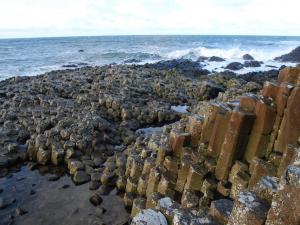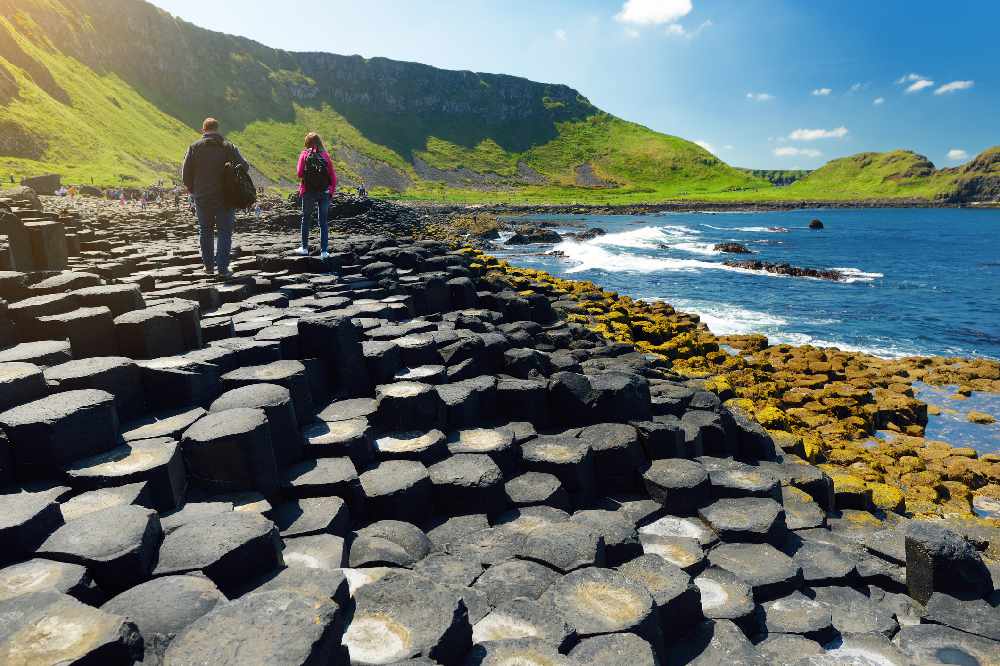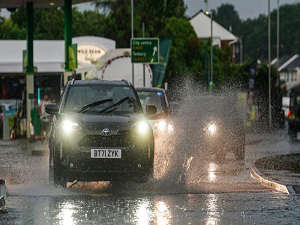
By Q Radio News/ PA
A warning has been sounded by tourism chiefs about plans to introduce a permit scheme for crossing the Irish border.
Under the plan, all non-UK and non-Irish EU citizens would have to apply for pre-travel clearance.
The Electronic Travel Authorisation (ETA) was announced last year as part of the Nationality and Borders Bill, and is envisaged as being similar to the system where those travelling to the United States fill in a form in advance.
Leading figures from the tourism industry gave evidence around the matter to the Northern Ireland Affairs Committee on Wednesday morning.
Joanne Stewart, chief executive of the Northern Ireland Tourism Alliance, described the Republic of Ireland as the “main gateway” for overseas travellers coming into Northern Ireland.
She said they estimate the proposed scheme could impact on half a million visitors and £160 million of visitor spend is at risk.
She also warned it could have an impact on Northern Ireland’s competitiveness in attracting major business conferences.
Ms Stewart said the industry has been “scrabbling for information” about the new scheme.
“There has been no consultation at all with the industry or with ourselves with regard to the introduction of the ETA and the impact in Northern Ireland,” she told MPs.
“We haven’t had any engagement, I have raised a number of questions seeking clarification but we really have not got any information… one of the really concerning things is that it seems to be single entry ETA and given the border, all of the ways you can cross it multiple ways on a trip, if this was just a single entry this would just be unworkable, completely impractical and could really cause huge cost to tourists who are travelling across the island… people want to have hassle-free travel.”
She said during the coronavirus pandemic they saw some operators cancel sections of the itinerary in Northern Ireland due to different testing and paperwork requirements around the virus.
“We have seen the impact that this can have when there isn’t alignment across the island,” she said.

Shane Clarke, director of corporate services, policy and Northern Ireland at Tourism Ireland, agreed there had been no consultation around the scheme.
“There was a degree on incredulity that this was being proposed, this is an industry that has been on its knees for the last two years because of Covid and they can’t really believe that this kind of regulation is being brought in,” he told MPs, warning it could deter potential visitors.
“They are looking for good news not looking for barriers and uncertainties to be put in their way… they felt it was going to be very damaging not only to the island of Ireland proposition in terms of free and unfettered access, they felt it was also going to be extremely damaging to Northern Ireland because in effect what they were saying is that Northern Ireland is a very exciting part of the island of Ireland itinerary but it is not a stand alone destination.
“By introducing these types of additional requirements, not only was it adding complexity and potentially cost but in terms of the near to home potential visitors, there are lots of other places they can choose to visit and this is going to add a barrier in terms of their potential to visit the island of Ireland and Northern Ireland.”
He said around a billion euros has been invested since 2002 in marketing the island as unfettered and easy access.
Immigration Minister Kevin Foster also gave evidence to the committee.
Committee chairman Simon Hoare said he had received figures on the numbers of prosecutions for illegal entry into the UK via the Irish border, as being just three in 2017, five in 2018, 32 in 2019, two in 2020, 15 in 2021 and two in 2022 so far.
He queried what is the “nut you are trying to crack”.
Mr Foster pointed to similar schemes around the world, and described reasons for the scheme as improved border security and better customer service
He emphasised the pre-travel clearance would not be an “onerous” requirement and indicated it would likely cost about £10, be valid for more than a year and would cover multiple trips.
He also suggested it would begin operating in 2025 and said the government has had a “productive conversation” with the Irish Government about long term residents of Ireland.



 Omagh bombing horrors revealed in hearings ‘will educate on effect of terrorism’
Omagh bombing horrors revealed in hearings ‘will educate on effect of terrorism’
 Stormont leaders urge network provider to compensate customers without power
Stormont leaders urge network provider to compensate customers without power
 One person is in a critical following four-vehicle crash on M1
One person is in a critical following four-vehicle crash on M1
 Northern Ireland in ‘eye of the storm’ – O’Neill
Northern Ireland in ‘eye of the storm’ – O’Neill
 Northern Ireland police declare ‘major incident’ as Storm Eowyn approaches
Northern Ireland police declare ‘major incident’ as Storm Eowyn approaches